© 2025 MJH Life Sciences™ , Patient Care Online – Primary Care News and Clinical Resources. All rights reserved.
Reducing Risk and Rates of Severe Hypoglycemia
Severe hypoglycemia is more prevalent than previously believed and also significantly underreported. Details from 3 studies at ADA 2018.

CLick through highlights above of 3 studies from the ADA 78th Scientific Sessions:
- Two reports on prevalence and reporting of severe hypoglycemia from Canada's largest hypoglycemia-specific survey, the InHypo-DM study
- The first report of an association between cumulative severe hypoglycemia incidents and clinical cardiovascular events in type 1 diabetes patients with early microvascular complications.

Largest Canadian Real-world Study of Severe Hypoglycemia. Results of the InHypo-DM survey suggest that the incidence of hypoglycemia requiring assistance, ie, severe hypoglcemia, in adults with T2DM taking insulin and/or insulin secretagogues, is higher than once thought.

History of NH Increased Expected Rate of SH by Factor of 4. Only having experienced nonsevere hypoglycemia (NH) was independently associated with episodes of severe hypoglycemia.
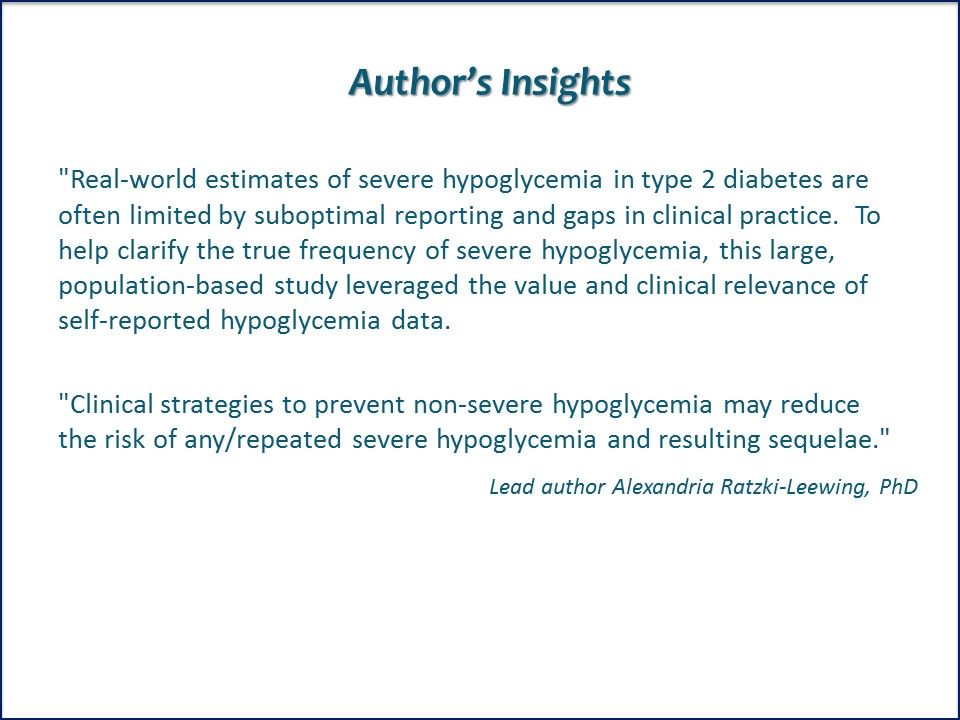
Author's Insights. "Clinical strategies to prevent non-severe hypoglycemia may reduce the risk of any/repeated severe hypoglycemia and resulting sequelae." Lead author Alexandria Ratzki-Leewing, PhD. Link to ADA abstract.
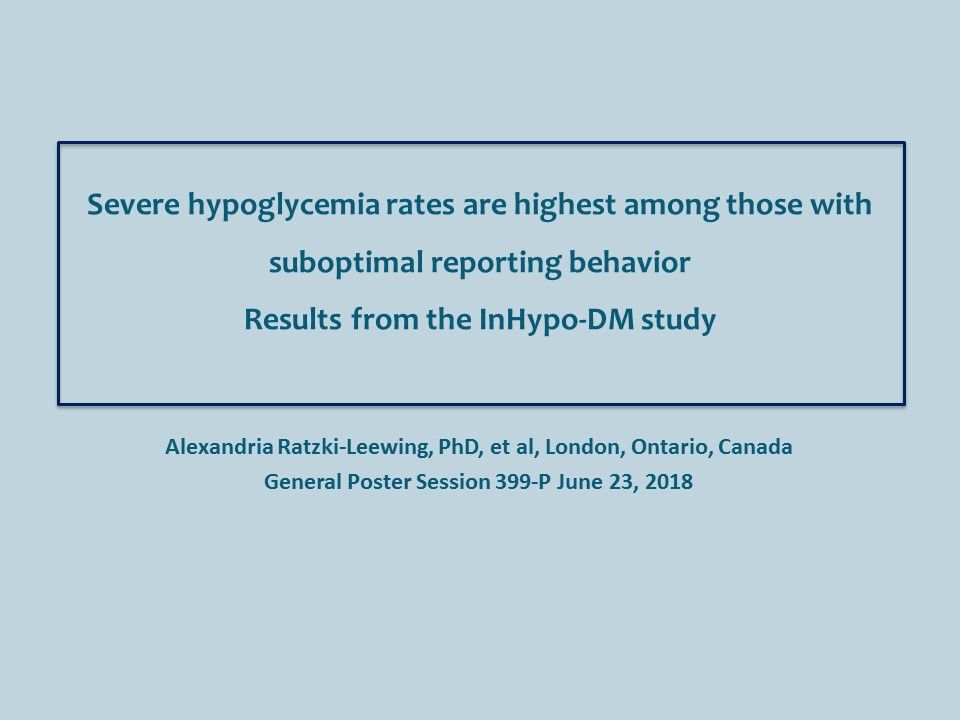
Severe hypoglycemia rates are highest among those with suboptimal reporting behavior: Results from the InHypo-DM study
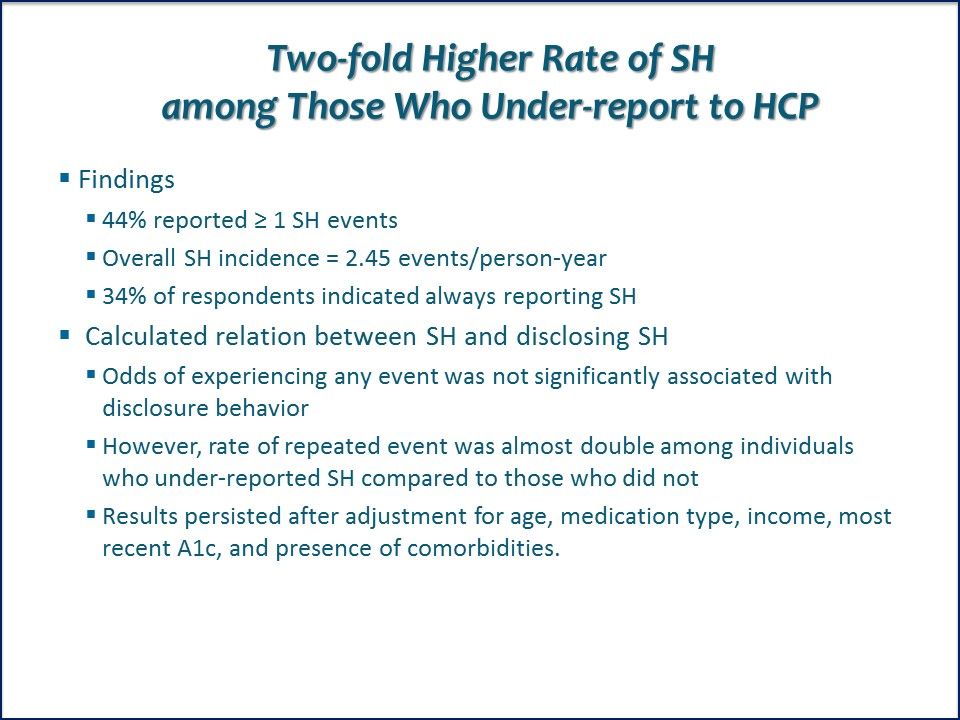
Two-fold Higher Rate of SH among Those Who Under-report to HCP. The rate of repeated event was almost double among individuals who under-reported SH compared to those who did not.
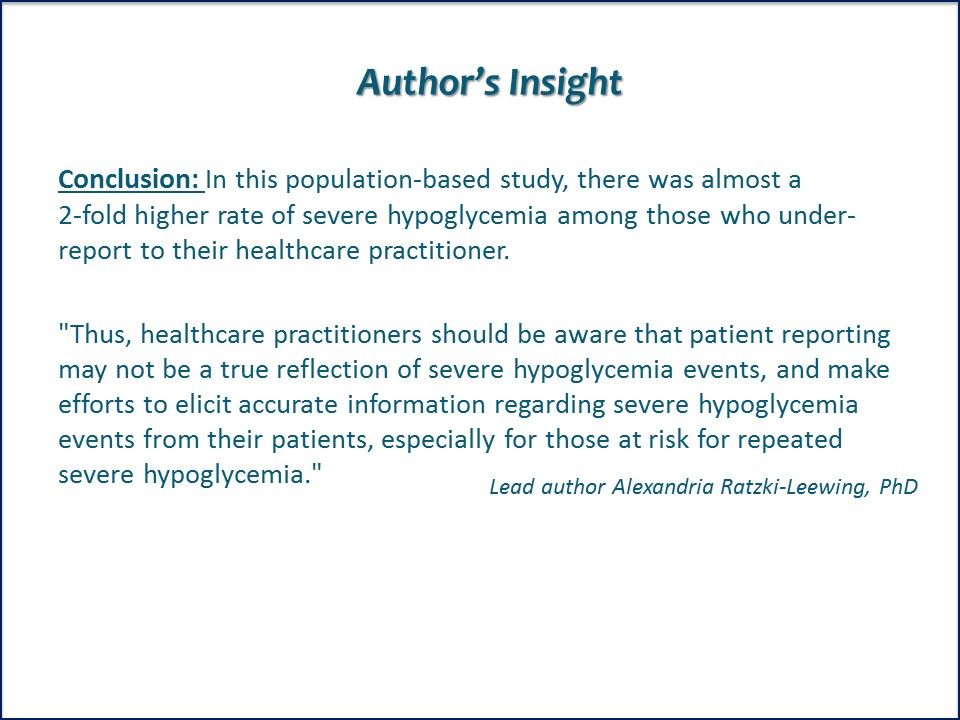
Author's Insights. "...healthcare practitioners should be aware that patient reporting may not be a true reflection of severe hypoglycemia events, and make efforts to elicit accurate information regarding severe hypoglycemia events from their patients, especially for those at risk for repeated severe hypoglycemia." Lead author Alexandria Ratzki-Leewing, PhD. Link to ADA abstract.
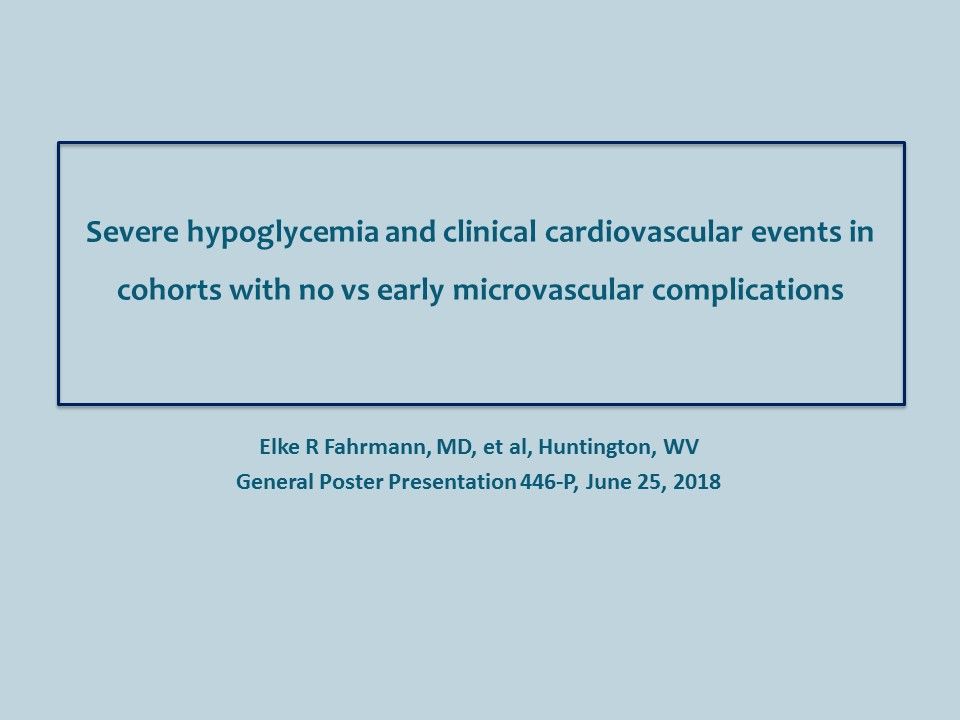
Severe hypoglycemia and clinical cardiovascular events in cohorts with no vs early microvascular complications
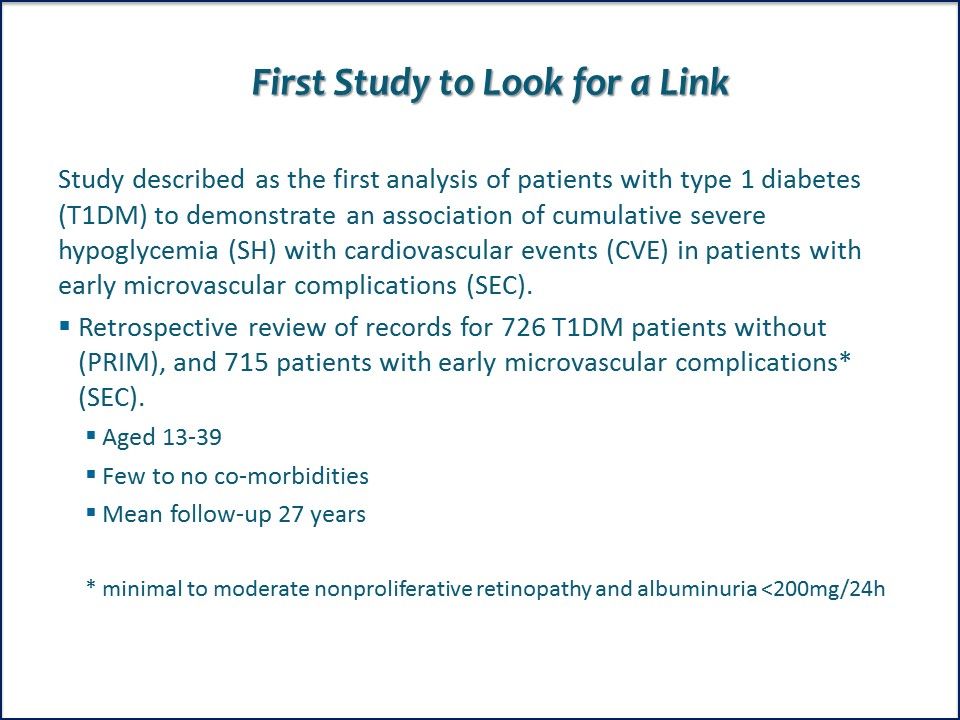
First Study to Look for a Link. Retrospective review of records for 726 T1DM patients without and 715 patients with early microvascular complications (minimal to moderate nonproliferative retinopathy and albuminuria <200mg/24h)

Author's Insights. "In addition to A1c, severe hypoglycemia in type 1 diabetes should be considered as a non-traditional chronic cardiovascular event risk factor in patients with early microvascular complications and managed accordingly." Lead author Elke R Fahrmann, MD Link to ADA abstract.
Related Content:






